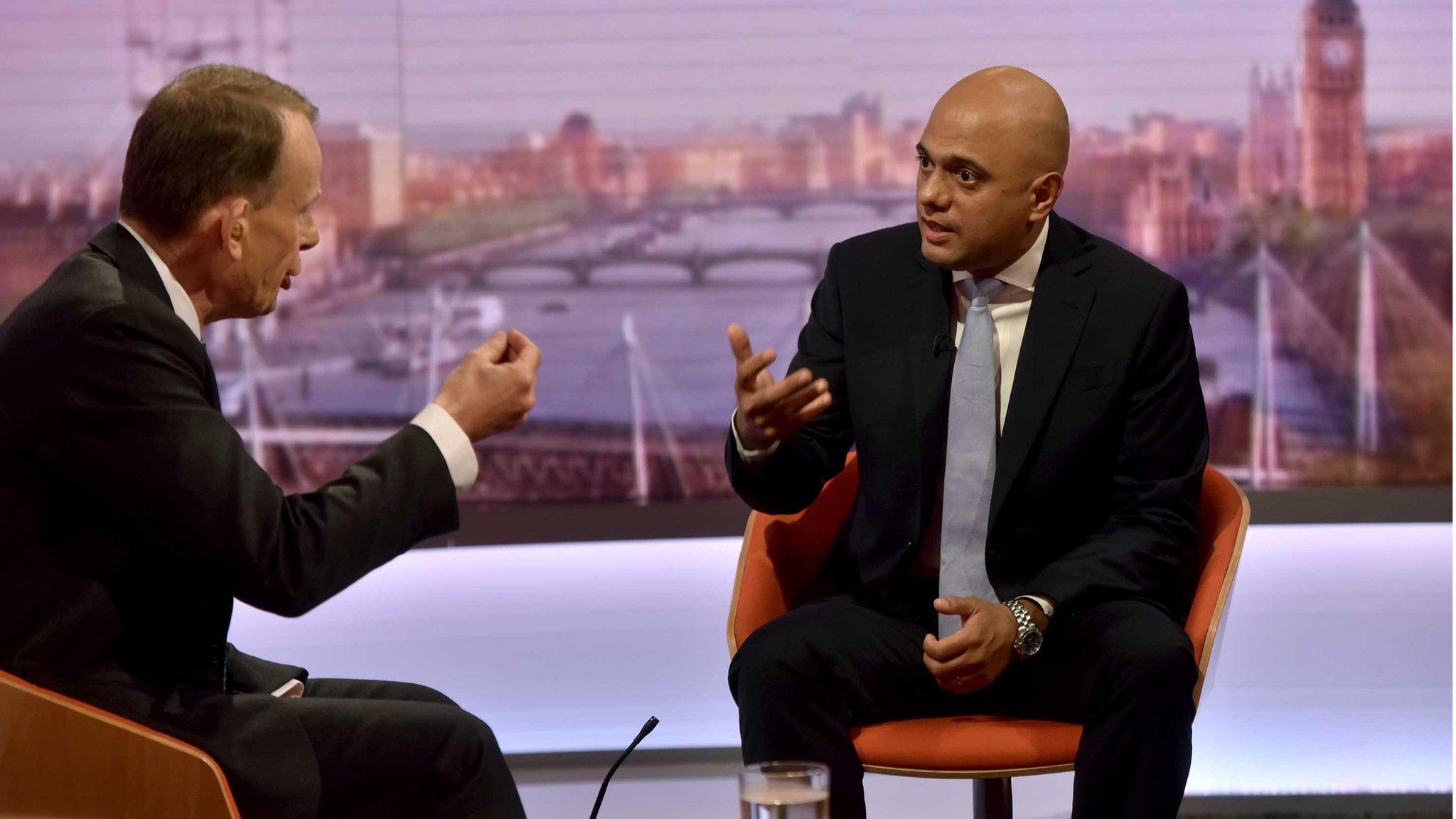UK immigration: No preference for EU workers after Brexit, cabinet agrees
- Published
- comments
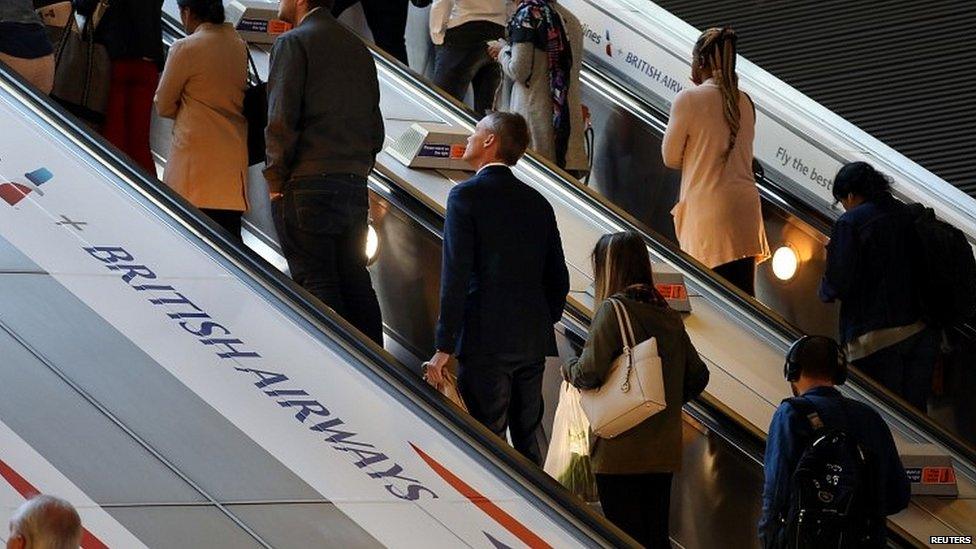
People from the EU should face the same immigration rules as those from elsewhere, once the UK has completely left the bloc, the cabinet has agreed.
The agreement in principle follows a recommendation of the independent Migration Advisory Committee (MAC), which was also backed by Labour.
The cabinet unanimously supported a system based on skills rather than nationality, a source told the BBC.
But some fear that a bar on low-skilled EU migrants may damage business.
The prime minister has repeatedly vowed to end unlimited immigration from Europe after Brexit.
BBC political editor Laura Kuenssberg said: "Ending freedom of movement as it stands has become a rhetorical non-negotiable for Theresa May."
But Hilary Benn, the Labour MP who chairs the Commons Brexit select committee, said the move was a mistake.
"It would have been sensible to give preference to EU citizens given the close relationship we want to have," he told a fringe meeting at the party's conference in Liverpool.
The cabinet agreement came after a presentation from the MAC chairman, Prof Alan Manning, at a lengthy meeting on Monday.
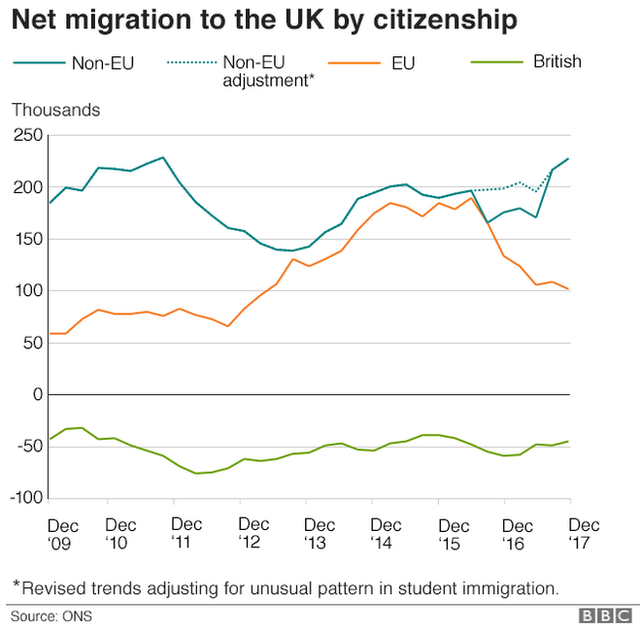
According to one source, the principle was agreed that the UK would not show bias towards immigrants from any one part of the world over another when granting access to work.
However, one cabinet source told the BBC the agreement did not constitute a firm decision and a government source said there could be "light touch migration" rules for EU nationals as part of any wider Brexit trade deal.
The government does not call this "preferential" treatment because a similar arrangement could be struck with, for example, the US as part of a UK-US trade deal.
The EU's principle of freedom of movement currently allows people from the European Economic Area - all EU countries, as well as Norway, Iceland and Liechtenstein - plus Switzerland, to travel and work within the area without visas, regardless of skills.

What are the current rules for non-EU citizens?
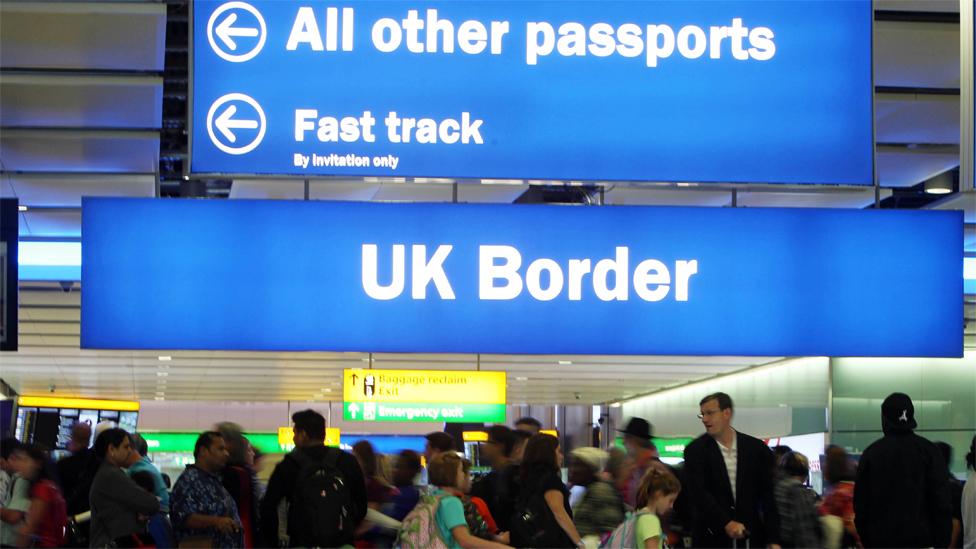
Anyone wanting to move to the UK from outside the EU, as well as Norway, Iceland, Liechtenstein and Switzerland, to work or study needs to apply for one of a number of visas.
These range from Tier 1, preserved for investors and "exceptional talent", to Tier 5 visas for short-term voluntary and educational programmes.
The two most common are the Tier 2 skilled worker visas and Tier 4 student visas. Currently, no Tier 3 - unskilled labour - visas are being given out.
Some of these visas allow people to apply to bring dependants such as children and partners.
Visas work on a points-based system and the criteria have got tougher in recent years.
For example, for a Tier 2 "experienced skilled worker" visa, people now need to be paid at least £30,000 to apply, up almost £10,000 from 2011. People get more points for higher salaries or if their job is on the list of shortage occupations.
Most visas come with other conditions, including knowledge of English, the need for a sponsor and agreeing not to claim benefits for a period of time.

The UK is due to withdraw from the European Union on 29 March next year, although an "implementation period" lasting until 31 December 2020 has been agreed as part of the proposed Brexit deal being negotiated between the UK and the EU.
In that transition period, EU citizens arriving in the UK would enjoy the same rights and guarantees as those who arrive beforehand. The same would apply to UK expats on the continent.
It remains unclear what would happen in the event of a "no-deal" Brexit, as the transition period would not then happen and the new migration system would, government sources say, have to be "tapered in" because it would not be ready by March.
Last week, the Migration Advisory Committee, an independent public body which advises ministers on migration issues, called for the annual limit on the number of high-skilled workers from outside the EU granted permission to work to be scrapped.
Currently set at 20,700 a year, the cap - imposed by Mrs May when at the Home Office - has resulted in thousands of IT specialists and NHS candidates being denied visas.
A change in the rules for NHS workers was announced in June after pressure from health bosses.
Lobby groups such as the Campaign for Science and Engineering have argued that job offers in other areas, such as science and engineering, should also be exempt from the rules.
Home Secretary Sajid Javid has previously said he was taking a "fresh look" at the Tier 2 cap.
Some business groups, particularly in industries such as agriculture and hospitality, have warned that any future arrangement barring low-skilled migrants could cause disruption.
It is understood that at Monday's cabinet meeting Business Secretary Greg Clark raised the concerns of businesses at a sudden change, arguing that there could be pressure for a gradual, rather than immediate shake up after Brexit.
The Chancellor Philip Hammond agreed that was likely but sources say there was a unanimous decision to move to a new system based on the principle of equal access, albeit with the acceptance that some sectors would need low skilled migrants from the EU.
- Published24 September 2018
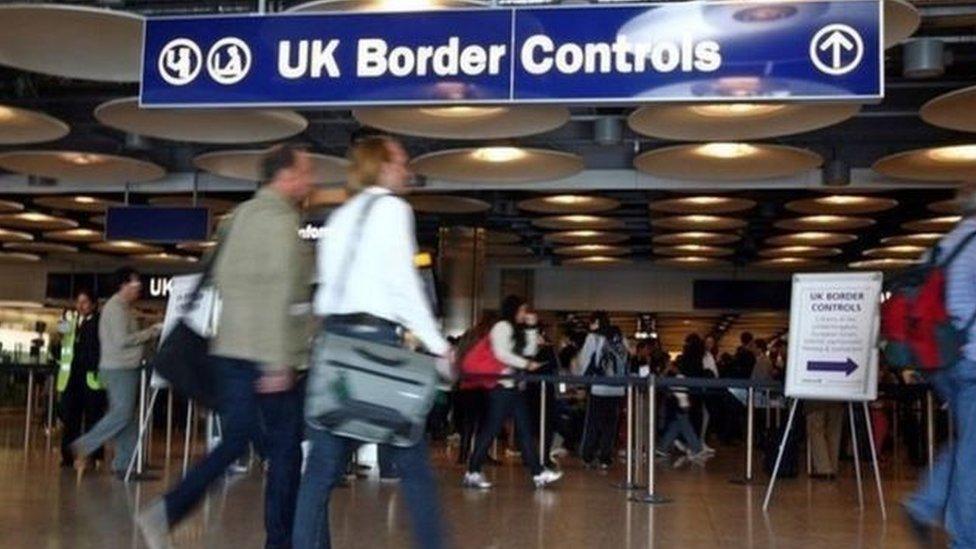
- Published10 August 2018

- Published3 June 2018
